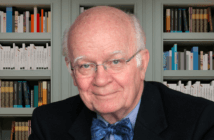Aaron M. Bouwens says too many churches make decisions based on the popularity and charisma of a plan’s proponents. He says congregations can make better decisions by asking key questions about the proposal’s alignment with mission and whether there are enough people and resources to support it.
The church council meeting has been moving along just fine when out of nowhere someone suggests a new ministry possibility, and a decision-making process based on popularity and charisma is employed. Are there key persons in the congregation advocating or supporting the idea? Is the idea being presented with enough passion and charisma to wow the group into approving it?
Many congregations use this style of decision making. It can yield good, productive ideas. But many times, it leads to unfruitful ministries that divert resources of time, talent, and treasure from more promising opportunities. And once a poor decision is made, it can be virtually impossible to reverse course or end an unproductive program.
Any congregation can make decisions a better way by asking three key questions.
1. Is it consistent with the congregation’s mission and vision?
This may seem like a simple, almost trite, question. But it is the most important question, and it should be asked with every decision. It requires that a congregation be clear about its mission and vision. When the mission and vision are more than just a slogan printed on publications, when they have taken root in the life of the church, they generate a focus for ministry that increases the possibility of fruitful decision making.
What if an idea or possibility is not consistent with the mission and vision? Then there is an opportunity to help shape the idea to make it consistent. Ask follow-up questions such as, “What adaptations need to be made so that there is consistency with the mission and vision?”
2. Is there a team to support the ministry?
All too often, ministries become the passion and responsibility of one person. When that person is no longer able to drive the ministry, it often disappears. A team approach enhances the likelihood of long-term fruitfulness. Congregations employing team-based leadership generally have healthier and more effective ministries. Solo heroic leadership has never been healthy for the church, yet it is often practiced.
In congregations that have dabbled in team-based ministry, leaders have been known to bring a team list forward when the team exists in name only. It’s important to make sure there is a functioning team in place, not just a list of names. A proponent of a new idea should be encouraged to develop a team before presenting the idea for consideration.
3. Are there enough resources to support the new ministry?
This becomes the key question after the first two questions have been successfully navigated. The question of resources includes financial planning but does not stop there. What level of congregational participation is expected? What physical space will be needed? How often will people need to be engaged?
Church leaders have a responsibility to consider the overall amount of time, money, and energy being asked of the congregation as a whole. Overwhelming a congregation with too many demands can limit the fruitfulness of all the ministries, not just the new idea. Having a plan for resources also helps build sustainability from the beginning. All too often great ministries struggle because insufficient attention was given to the need for adequate resources when starting and developing a new idea.
Putting it all together
It’s tempting to skip or postpone answering one or more of these questions. But for this style of decision making to be most effective, the three questions need to be asked consistently and in order: ask first about consistency with mission and vision; then ask about the team; and, finally, ask about resources.
Congregations should commit to start new ministries only when all three questions are answered affirmatively. If “no” is the answer to any of the questions, there is always the opportunity to adapt and refine the idea to move toward a “yes” answer. Once the answer to all three questions is “yes”, the idea is greenlighted.
These three questions can be used not only for new ideas, but to evaluate ongoing ministries as well. A program’s connection to mission and vision can drift, teams can shift and deteriorate, resources can be depleted, or needs can change. So, it can be helpful to apply the filter of these three questions to all of a church’s ministries on a regular basis, perhaps every 12 to 18 months.
When these three questions are used on an ongoing basis, congregations are better positioned to engage in sustained, fruitful ministries that participate with God in the transformation of the world.
Related Resources
- Discovering God’s Future for Your Church Video Tool Kit
- 5 Steps for Putting Good Ideas into Action by Jim Hoffman
- Launching Sustainable Ministries by Ann A. Michel







